
Find Help
More Items From Ergsy search
-

Am I eligible to try the new sleep apnea chip?
Relevance: 100%
-

How does the new Sleep Apnea Chip work?
Relevance: 84%
-

What is sleep apnoea?
Relevance: 55%
-

What is sleep apnea?
Relevance: 55%
-

How common is sleep apnea?
Relevance: 53%
-

Can sleep apnea be cured?
Relevance: 53%
-

Why is sleep apnea dangerous?
Relevance: 53%
-
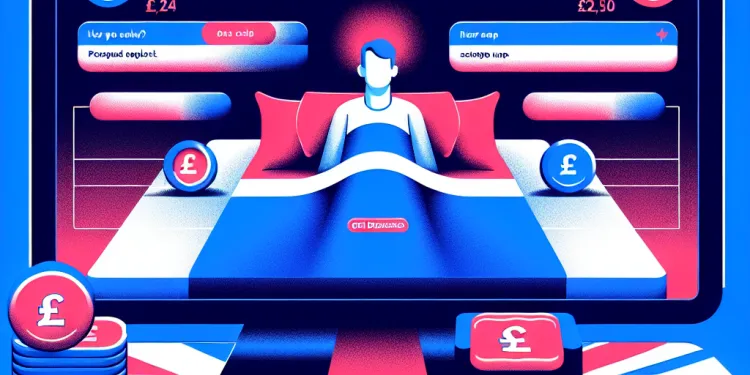
How is sleep apnea diagnosed?
Relevance: 53%
-

What are the main types of sleep apnea?
Relevance: 51%
-

What are common symptoms of sleep apnea?
Relevance: 51%
-
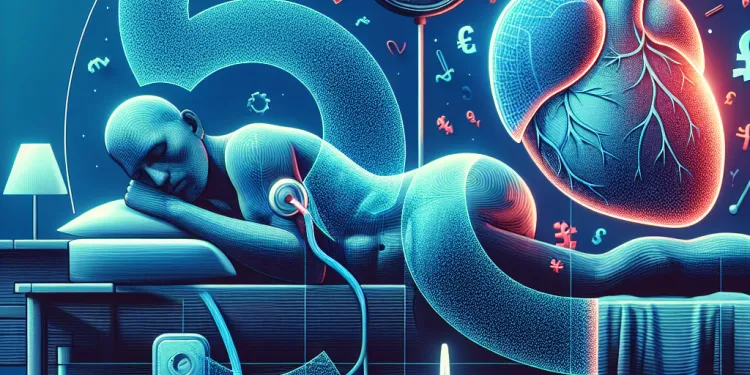
What is complex sleep apnea syndrome?
Relevance: 51%
-

Can alcohol worsen sleep apnea?
Relevance: 51%
-

Can children have sleep apnea?
Relevance: 51%
-

What is complex sleep apnea syndrome?
Relevance: 51%
-
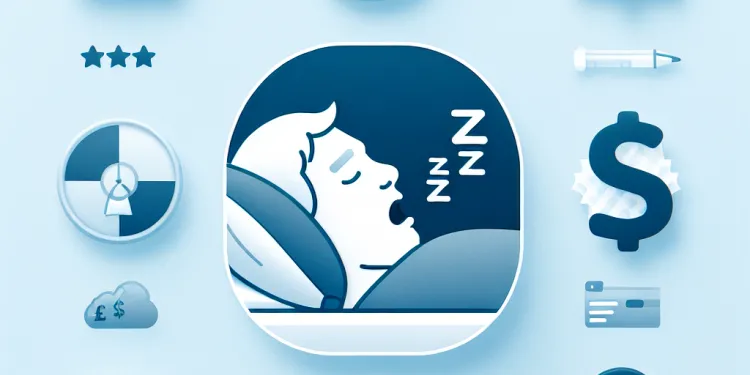
Is snoring always a sign of sleep apnea?
Relevance: 50%
-

What treatments are available for sleep apnea?
Relevance: 50%
-
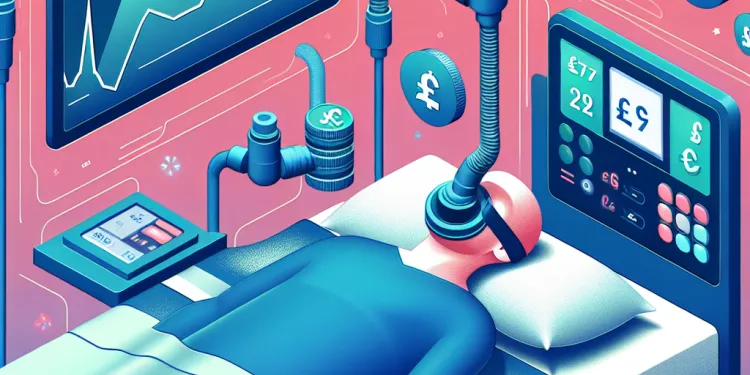
Is CPAP the only treatment for sleep apnea?
Relevance: 50%
-

What causes obstructive sleep apnea?
Relevance: 50%
-

Does sleep apnea occur only in adults?
Relevance: 49%
-

What are risk factors for developing sleep apnea?
Relevance: 49%
-

Can weight loss improve sleep apnea?
Relevance: 49%
-

What should I do if I suspect I have sleep apnea?
Relevance: 49%
-

What lifestyle changes can help manage sleep apnea?
Relevance: 46%
-
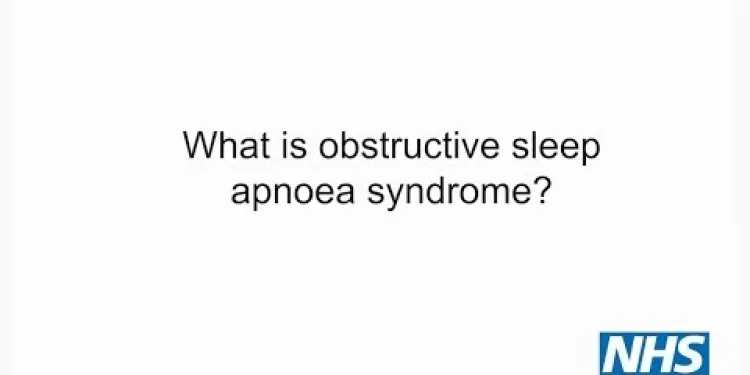
Introduction to obstructive sleep apnoea
Relevance: 39%
-
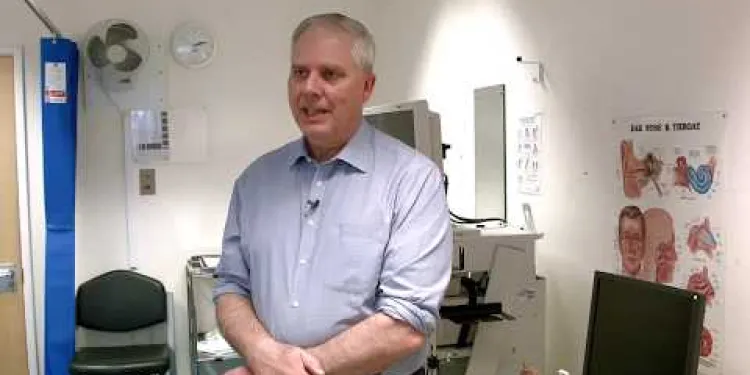
Evidence-Based Interventions: snoring surgery in the absence of Obstructive Sleep Apnoea (OSA)
Relevance: 36%
-
What is sleep apnoea?
Relevance: 28%
-

How does central sleep apnea differ from obstructive sleep apnea?
Relevance: 25%
-

The Importance of Sleep for All Ages
Relevance: 23%
-

How does sleep quality relate to menopause symptoms?
Relevance: 22%
-

Does screen time affect both sleep onset and sleep maintenance?
Relevance: 21%
-
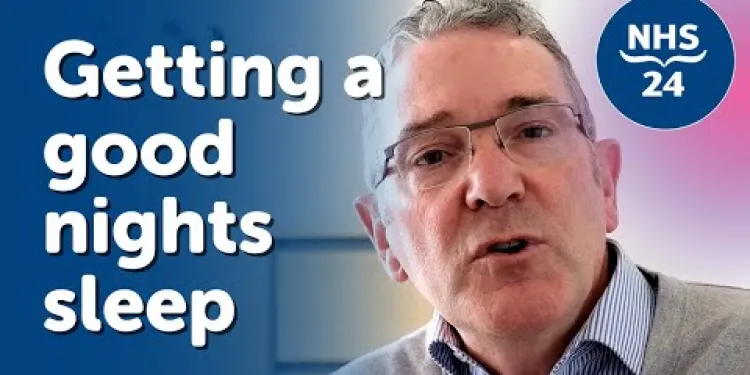
Top Tips to Help You Get a Good Nights Sleep
Relevance: 21%
-

Are baby sleep pillows safe?
Relevance: 21%
-

Who is eligible for the EV grant in the UK?
Relevance: 21%
-
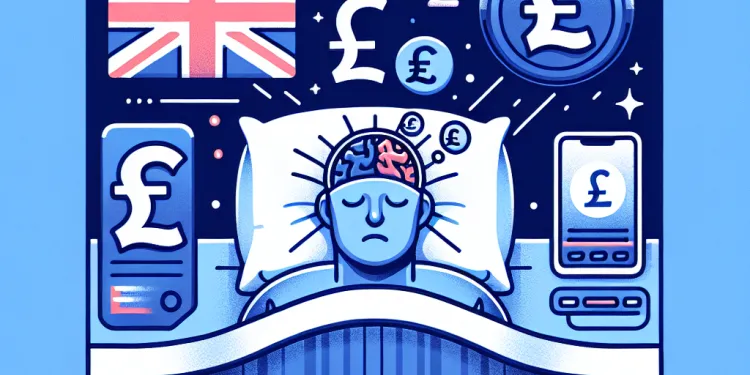
Is it safe to sleep after a concussion?
Relevance: 20%
-

Is it safe to sleep after a concussion?
Relevance: 20%
-

Is it okay to use a baby sleep positioner?
Relevance: 20%
-
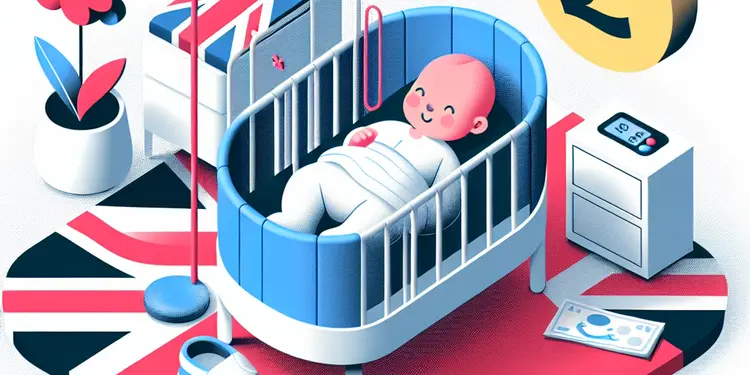
What is the safest sleep environment for an infant?
Relevance: 20%
-
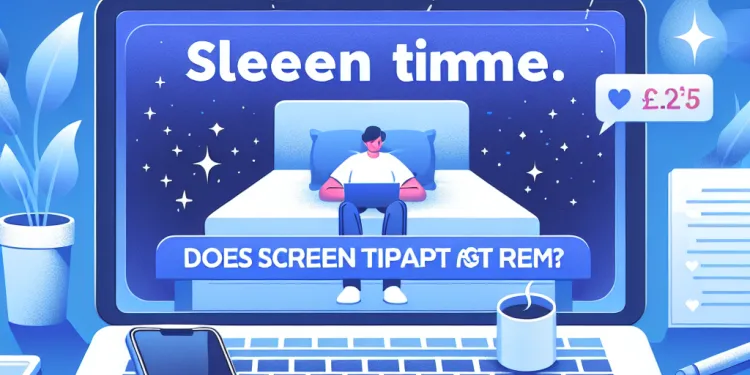
Does screen time impact REM sleep?
Relevance: 19%
-

Why are baby sleep pillows not safe for infants?
Relevance: 19%
-

Are there any benefits to using baby sleep pillows?
Relevance: 19%
Eligibility for the New Sleep Apnea Chip
Sleep apnea is a prevalent disorder that affects many individuals, characterized by interruptions in breathing during sleep. Recent advancements have introduced a new device, often referred to as the sleep apnea chip, which could offer a revolutionary approach to managing this condition.
Understanding the Device
The sleep apnea chip is designed to be a minimally invasive solution aimed at reducing the symptoms of sleep apnea. It functions by being implanted in the body and works to stimulate the nerves, ensuring continuous breathing during sleep. This alternative is particularly appealing to patients who have found traditional treatments like CPAP (Continuous Positive Airway Pressure) machines cumbersome.
Criteria for Eligibility
Determining whether you are eligible to try this new sleep apnea chip involves several considerations. Firstly, it is typically recommended for adults who have been diagnosed with moderate to severe obstructive sleep apnea (OSA) and have struggled with or are intolerant to CPAP therapy. A comprehensive evaluation by a healthcare professional, including sleep studies, is crucial to assess your suitability for the implant.
Consulting Healthcare Professionals
If you reside in the United Kingdom and believe you might be a candidate for the sleep apnea chip, the first step is to consult with your GP or a specialist in sleep disorders. They can provide guidance based on your specific symptoms and medical history. In some cases, a referral to a sleep clinic or a specialist surgeon may be necessary for further evaluation.
Navigating the NHS and Private Options
In the UK, availability through the NHS may be limited initially, as with many new medical technologies. However, private healthcare providers may offer faster access. It's important to explore all avenues, considering factors such as cost, the reputability of the provider, and potential waiting times.
Making an Informed Decision
Ultimately, deciding to pursue treatment with the sleep apnea chip should be based on a thorough understanding of the potential benefits, risks, and your personal health circumstances. Engaging in open dialogue with healthcare professionals and considering second opinions can aid in making the most informed decision for your sleep health.
Who Can Get the New Sleep Apnea Chip?
Sleep apnea is a common problem. It makes people stop breathing for short times when they sleep. There is a new tool called a sleep apnea chip that can help people with this problem.
What is the Sleep Apnea Chip?
The sleep apnea chip is a small device. It goes inside the body and helps people breathe better when they sleep. This is helpful for people who do not like using CPAP machines, which are big and can be hard to use.
Who Can Use the Chip?
To see if you can use the sleep apnea chip, there are some things to check. It is usually for adults who have a big problem with sleep apnea. These people also have trouble using CPAP machines. Your doctor will need to do tests to see if the chip is right for you.
Talk to Your Doctor
If you live in the UK and think the sleep apnea chip might help you, talk to your GP (family doctor) or a special sleep doctor. They can tell you more about it and check if it is a good idea for you. Sometimes you might need to see another doctor at a special sleep clinic.
Getting the Chip in the UK
In the UK, it might take time to get this chip on the NHS, but private doctors might help you faster. Think about things like the cost and how long you might need to wait if you go private.
Choose What’s Best for You
Before deciding to get the sleep apnea chip, learn about the good and bad things it might bring. Talk to doctors and ask questions. You might even talk to more than one doctor to know all your options. This will help you make the best choice for your health and sleep.
Frequently Asked Questions
What is the new sleep apnea chip?
The new sleep apnea chip is a medical device designed to treat obstructive sleep apnea by stimulating the hypoglossal nerve to keep the airway open during sleep.
Who is eligible to try the new sleep apnea chip in the UK?
Eligibility typically includes adults with moderate to severe obstructive sleep apnea who cannot use CPAP therapy or have not found it effective. A thorough evaluation by a sleep specialist is necessary.
How can I find out if I'm eligible for the sleep apnea chip in the UK?
Consult with a sleep specialist or your GP, who may refer you to a specialist clinic for assessment and eligibility evaluation.
Is the sleep apnea chip covered by the NHS?
The availability and coverage on the NHS may vary. You should consult with your healthcare provider and local NHS trust for the most accurate and current information.
What are the benefits of using the sleep apnea chip?
Benefits can include improved quality of sleep, reduced symptoms of sleep apnea, and improved daytime alertness. However, results can vary among patients.
How is the sleep apnea chip implanted?
The chip is implanted through a minimally invasive surgical procedure, typically performed under general anesthesia. Recovery times can vary.
Are there any risks associated with the sleep apnea chip?
As with any surgical procedure, potential risks include infection, pain at the implant site, and nerve injury. Discuss all risks with your healthcare provider.
How soon will I see results after getting the sleep apnea chip?
Patients may experience improvements shortly after activation of the device, but it can take several weeks for the full benefits to be realized.
Can anyone with sleep apnea use the chip?
No, this treatment is not suitable for everyone with sleep apnea. Specifically, it's targeted at those with obstructive sleep apnea who have not responded well to other treatments like CPAP.
What do I need to do if I want the sleep apnea chip?
You should begin by discussing your symptoms with your GP, who can refer you to a sleep clinic for evaluation and consideration for this treatment.
How does the sleep apnea chip work?
The chip sends mild stimulation to the hypoglossal nerve, which controls the tongue, preventing airway collapse during sleep.
How much does the sleep apnea chip cost?
Costs can vary significantly depending on whether the device is covered by the NHS, private insurance, or if you're paying out of pocket. Check with your healthcare provider.
Is the sleep apnea chip reversible?
Yes, the procedure is generally reversible, and the device can be removed if necessary.
What alternative treatments are available if I'm not eligible for the sleep apnea chip?
Alternative treatments include CPAP therapy, lifestyle changes, mandibular advancement devices, and in some cases, surgery.
How long does the implant last?
The device is designed to be long-lasting, but follow-up appointments are necessary to ensure it continues to operate correctly. Your specialist can provide more details.
What is the new sleep helper chip?
There is a new chip to help people who have trouble sleeping, called sleep apnea. This chip can help you breathe better while you sleep.
Tools to help understand:
- Ask a family member or friend to explain.
- Use pictures and videos to see how it works.
The new sleep apnea chip is a medical tool. It helps people who have trouble breathing when they sleep. It works by sending a small signal to a nerve. This helps keep the throat open so you can breathe easily while sleeping.
Who can try the new sleep apnea chip in the UK?
If you want to know who can try the new sleep apnea chip, this will help you understand.
People can try the chip if they meet certain rules. A doctor might decide if it is right for you.
It is good to ask a doctor or nurse for help. They can explain it clearly.
You can also use pictures or videos to learn more. They make it easier to understand.
If you have trouble breathing while you sleep, you might have something called sleep apnea. This message is for adults who have a hard time with sleep apnea. This is especially for those whose breathing machines, called CPAP, do not work well for them. To find out if you need help, you should see a special doctor who knows all about sleep.
Can I get the sleep apnea chip in the UK?
Check if you can have the sleep apnea chip in the UK. Here are some steps to help:
- Talk to your doctor. They can give you advice.
- Look for information on NHS websites.
- Speak to a sleep specialist.
Using a computer can help you find more information. You can ask someone you trust to help you look online.
Talk to a sleep doctor or your regular doctor. They might send you to a special clinic to see if you need more help.
Can you get the sleep apnea chip from the NHS?
The NHS might offer different services in different places. It's a good idea to talk to your doctor or local NHS group to find out what help you can get and what is available right now.
What are the good things about using the sleep apnea chip?
The sleep apnea chip can help people who have trouble sleeping.
Here are some good things it can do:
- It helps you breathe better when you sleep.
- It can make you feel more rested in the morning.
- It helps stop loud snoring.
- It can make you feel less tired during the day.
Tools that might help:
- Talk to a doctor to see if the chip is right for you.
- Use a sleep tracker to see how you sleep each night.
- A sleep diary can help you remember how you slept.
Good things can happen with treatment. It can help you sleep better at night. If you have trouble breathing in your sleep (sleep apnea), it might get better too. You could feel more awake and full of energy during the day. But, not everyone will feel the same way.
How do doctors put in the sleep apnea chip?
Doctors put a special chip in your body to help with sleep problems. They use a simple operation. You will not feel any pain because you will get medicine that helps you sleep during the operation. Here is how it works: 1. **Get Ready** - You will go to a hospital. - Doctors give you medicine to help you sleep. 2. **Putting in the Chip** - The doctor makes a small cut. - They put the chip inside your body. 3. **Finish Up** - The doctor closes the cut with a few stitches. - You rest until you wake up. 4. **After the Operation** - You might go home the same day. - Follow doctor’s instructions for taking care of the small cut. **Tools to Help You:** - **Ask Questions:** If you don’t understand, ask a doctor or nurse. - **Bring a Friend:** A friend or family member can help remember things. - **Use Pictures:** Sometimes looking at pictures can help you understand better. If you have questions or need more help, always ask a doctor or nurse.The chip is put in with a small surgery. You are asleep during this. It does not hurt much. Everyone heals at their own speed.
Is the sleep apnea chip safe?
All surgeries can have problems. These problems might be:
- Getting an infection (germs making you sick)
- Feeling pain where the implant is put in
- Hurt nerves (the body’s wires that help you feel and move)
Talk to your doctor about all these problems. They can help you understand better.
When will I start to feel better after getting the sleep apnea chip?
When doctors turn on the device, patients might feel a bit better right away. But it can take a few weeks to feel all the good effects.
Can people who have trouble with breathing at night use the chip?
This treatment is not good for everyone with sleep apnea. It is for people with a type called obstructive sleep apnea. It helps when other treatments, like CPAP, do not work.
How can I get the sleep apnea chip?
Here are some steps you can follow:
- Talk to your doctor. They can tell you if the chip is right for you.
- Ask how you can get the chip. Your doctor will help you know what to do next.
- Make sure you follow any instructions from your doctor or healthcare provider.
- You might need to visit a clinic for help.
Tools that can help:
- Bring a friend or family member to appointments to help you remember what the doctor says.
- Write down any questions you have before your visit.
- Use pictures or drawings to understand better.
You should start by talking to your doctor about how you are feeling. Your doctor can then send you to a sleep clinic to check if this treatment is right for you.
How does the sleep apnea chip work?
A sleep apnea chip is a tiny device that helps people breathe better at night.
Here is how it works:
- The chip is put inside the body.
- When you go to sleep, it helps keep your airway open.
- This way, you can breathe easily while you sleep.
If you have trouble reading, you can:
- Ask someone to read it with you.
- Use an app that reads text out loud.
- Take your time and read slowly.
The chip helps keep your airway open while you sleep. It gently helps the nerve that moves your tongue, so your airway doesn't get blocked.
What is the price of the sleep apnea chip?
The sleep apnea chip helps people breathe better when they sleep. To find out how much it costs, you can ask a doctor or look online. A good tool to help with reading is to use a voice reader. It can read the words out loud for you. You can also ask someone to help you understand the information.
The cost of devices can be very different. It depends on who is paying for it. The NHS might cover it, or your private insurance might pay. If not, you might have to pay yourself. Ask your doctor or healthcare provider for help.
Can you take out the sleep apnea chip?
Yes, you can usually change it back. You can take the device out if you need to.
What other treatments can I try if I can't use the sleep apnea chip?
If the sleep apnea chip is not right for you, there are other things you can try:
- CPAP Machine: A mask and machine that helps you breathe at night.
- Mouth Guard: A special mouthpiece to wear when you sleep.
- Change Sleeping Position: Try sleeping on your side instead of your back.
- Healthy Habits: Exercise, lose weight, and avoid alcohol before bed.
Talk to your doctor about these options to find out what is best for you.
There are different ways to help. These include CPAP machines, changing habits, using special mouthpieces, and sometimes surgery.
How long does the implant last?
An implant is something doctors put in your body to help you stay healthy. It can last for a long time, but everyone is different.
Usually, an implant works well for a few years. After that, you might need a new one or a check-up with your doctor.
If you are not sure how long your implant will last, you can:
- Ask your doctor for more information.
- Read the paper that comes with the implant.
- Use online tools like video or audio explanations to understand more.
The device is made to last a long time. But you need to have check-ups to make sure it works well. Your doctor can tell you more about it.
Useful Links
This website offers general information and is not a substitute for professional advice.
Always seek guidance from qualified professionals.
If you have any medical concerns or need urgent help, contact a healthcare professional or emergency services immediately.
Some of this content was generated with AI assistance. We’ve done our best to keep it accurate, helpful, and human-friendly.
- Ergsy carfully checks the information in the videos we provide here.
- Videos shown by Youtube after a video has completed, have NOT been reviewed by ERGSY.
- To view, click the arrow in centre of video.
- Most of the videos you find here will have subtitles and/or closed captions available.
- You may need to turn these on, and choose your preferred language.
- Go to the video you'd like to watch.
- If closed captions (CC) are available, settings will be visible on the bottom right of the video player.
- To turn on Captions, click settings .
- To turn off Captions, click settings again.
More Items From Ergsy search
-

Am I eligible to try the new sleep apnea chip?
Relevance: 100%
-

How does the new Sleep Apnea Chip work?
Relevance: 84%
-

What is sleep apnoea?
Relevance: 55%
-

What is sleep apnea?
Relevance: 55%
-

How common is sleep apnea?
Relevance: 53%
-

Can sleep apnea be cured?
Relevance: 53%
-

Why is sleep apnea dangerous?
Relevance: 53%
-

How is sleep apnea diagnosed?
Relevance: 53%
-

What are the main types of sleep apnea?
Relevance: 51%
-

What are common symptoms of sleep apnea?
Relevance: 51%
-

What is complex sleep apnea syndrome?
Relevance: 51%
-

Can alcohol worsen sleep apnea?
Relevance: 51%
-

Can children have sleep apnea?
Relevance: 51%
-

What is complex sleep apnea syndrome?
Relevance: 51%
-

Is snoring always a sign of sleep apnea?
Relevance: 50%
-

What treatments are available for sleep apnea?
Relevance: 50%
-

Is CPAP the only treatment for sleep apnea?
Relevance: 50%
-

What causes obstructive sleep apnea?
Relevance: 50%
-

Does sleep apnea occur only in adults?
Relevance: 49%
-

What are risk factors for developing sleep apnea?
Relevance: 49%
-

Can weight loss improve sleep apnea?
Relevance: 49%
-

What should I do if I suspect I have sleep apnea?
Relevance: 49%
-

What lifestyle changes can help manage sleep apnea?
Relevance: 46%
-

Introduction to obstructive sleep apnoea
Relevance: 39%
-

Evidence-Based Interventions: snoring surgery in the absence of Obstructive Sleep Apnoea (OSA)
Relevance: 36%
-
What is sleep apnoea?
Relevance: 28%
-

How does central sleep apnea differ from obstructive sleep apnea?
Relevance: 25%
-

The Importance of Sleep for All Ages
Relevance: 23%
-

How does sleep quality relate to menopause symptoms?
Relevance: 22%
-

Does screen time affect both sleep onset and sleep maintenance?
Relevance: 21%
-

Top Tips to Help You Get a Good Nights Sleep
Relevance: 21%
-

Are baby sleep pillows safe?
Relevance: 21%
-

Who is eligible for the EV grant in the UK?
Relevance: 21%
-

Is it safe to sleep after a concussion?
Relevance: 20%
-

Is it safe to sleep after a concussion?
Relevance: 20%
-

Is it okay to use a baby sleep positioner?
Relevance: 20%
-

What is the safest sleep environment for an infant?
Relevance: 20%
-

Does screen time impact REM sleep?
Relevance: 19%
-

Why are baby sleep pillows not safe for infants?
Relevance: 19%
-

Are there any benefits to using baby sleep pillows?
Relevance: 19%


